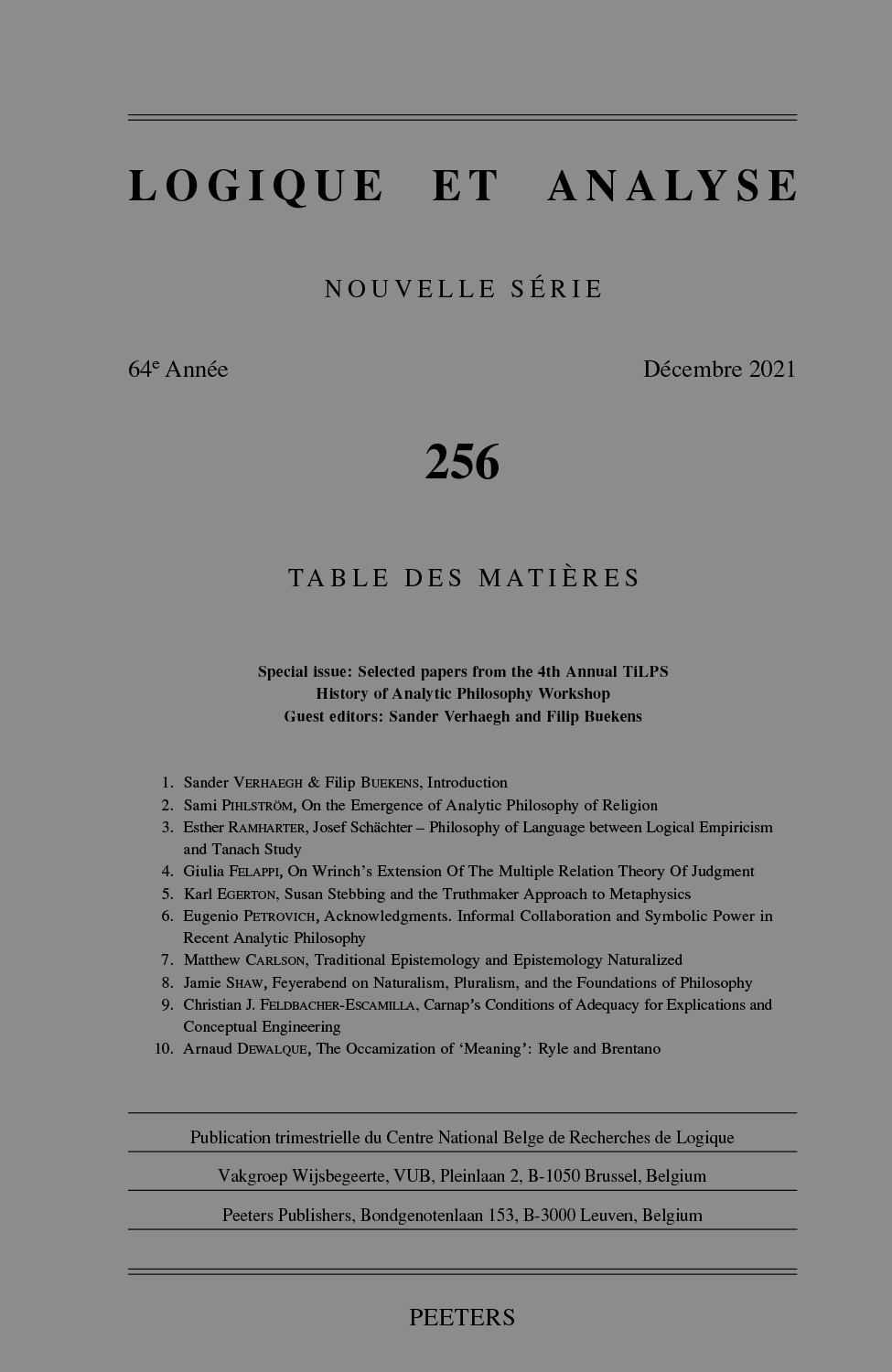 previous article in this issue previous article in this issue | next article in this issue  |

|
Document Details : Title: Should Mathematicians Play Dice? Author(s): BERRY, Don Journal: Logique et Analyse Volume: 246 Date: 2019 Pages: 135-160 DOI: 10.2143/LEA.246.0.3286441 Abstract : It is an established part of mathematical practice that mathematicians demand deductive proof before accepting a new result as a theorem. However, a wide variety of probabilistic methods of justification are also available. Though such procedures may endorse a false conclusion even if carried out perfectly, their robust structure may mean they are actually more reliable in practice once implementation errors are taken into account. Can mathematicians be rational in continuing to reject these probabilistic methods as a means of establishing a mathematical claim? In this paper, I give reasons in favour of their doing so. Rather than appealing directly to individual epistemological considerations, the discussion offers a normative constraint on what constitutes a good mathematical argument. This I call ‘Univocality’: the requirement that the underlying concepts all have clear defining conditions. |
|
